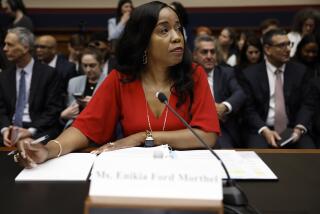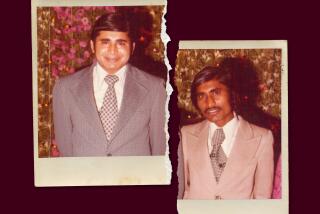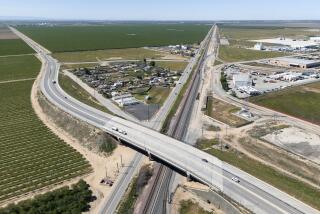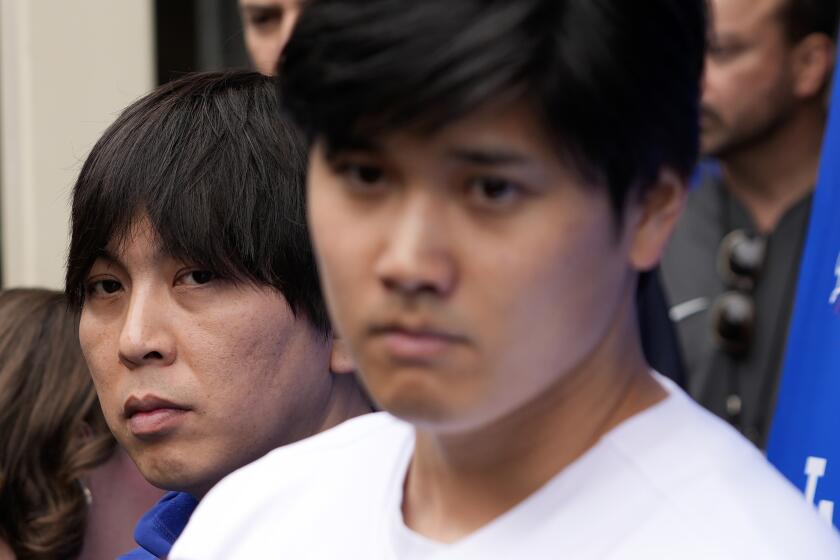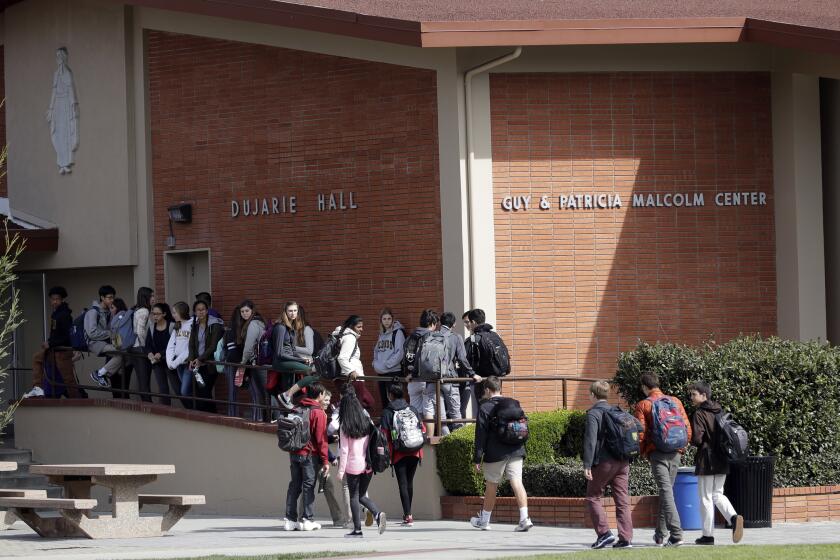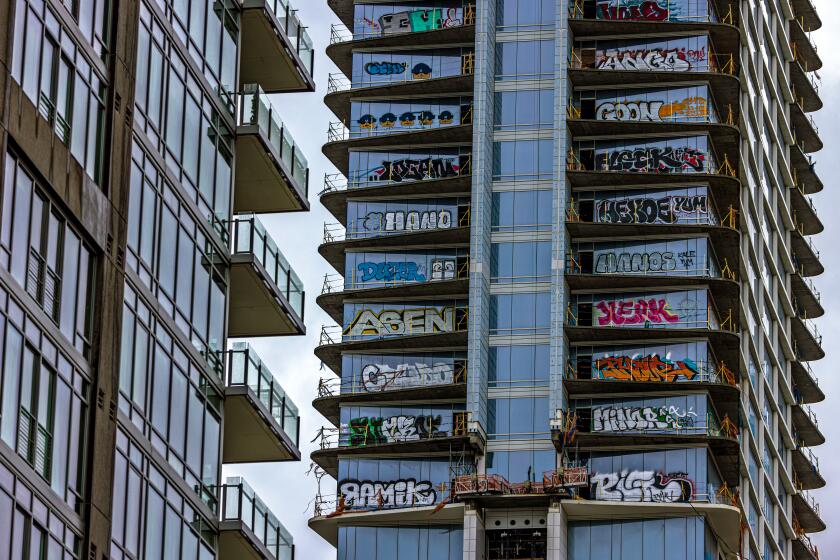Clinton’s Panel on Race Hears Success Stories
At Los Angeles City Fire Station 68, the story is right on the walls.
One holds color photographs of local elementary schoolchildren, mostly Latino and African American, polished and proud members of the fire cadet program.
On another hangs a black-and-white map of a four-square-mile area. Pushpins mark the locations of shootings this year. The names of gang territories have been written in.
“Do you ever have converts from the gangs who want to be a part of your youth group?” asked Elise Winter, who toured the station Friday with members of President Clinton’s advisory board on race, including her husband, former Mississippi Gov. William Winter.
“Absolutely,” said fire Capt. Kwame Cooper.
“Wonderful!” she said.
Visiting advisory board members heard much more than residents’ views on race Friday. At several stops in the city, Executive Director Judith A. Winston and former Gov. Winter also heard the stories of people and programs that are succeeding in their efforts to combat some of the city’s most difficult community problems.
Board members came to the city “to obtain not only information, but inspiration,” William Winter said.
The community outreach efforts of Station 68 caught Washington’s attention in November when the advisory board dubbed its cadet program a “Promising Practice,” part of the board’s effort to identify groups’ work in changing their communities.
The fire cadet program trains young people in basic first aid and fire and earthquake safety. The program helps instill discipline and good citizenship, Cooper said.
Firefighters at the station also maintain a dialogue with members of gangs. The exchange is one way firefighters have increased their knowledge of the neighborhood and their ability to work without becoming caught between warring gangs.
“What we do is based on the needs of this community,” Cooper told the board members. “It definitely works.”
The advisory board members also visited Marvin Avenue School, where 180 students participate in a language magnet.
“We’re trying to have our youngsters become global, to give them an edge on life,” said Principal Anna McLinn.
She said board members sat in on classes where African American and Latino youngsters are in French, German, Chinese, Japanese and Korean immersion programs.
Through their ability to speak other languages, the students will be able to mend bridges, McLinn said, and help increase understanding among various groups.
At St. Elmo’s Village, an art enclave in the Mid-City area, Winston, the Winters and board staff met with residents. Former gang members, artists, educators and others joined small group discussions.
In one group, William Winter described his experiences growing up in the segregated South.
“If we ever understand that what unifies us is so much stronger than the superficialities of race that separate us, we’d be all right,” he said.
*
Avis Ridley-Thomas, who heads the city attorney’s Dispute Resolution Program, moderated the discussion at St. Elmo’s Village and invited participants to send their thoughts to the president.
One woman pointed to what she called the importance of the arts, saying they are “crucial to helping people see things from different points of view.”
Bo Taylor of Unity One, an organization that works to maintain peace between gangs, said the president “needs to come and see this community for what it really is.”
For Taylor and others, the question was not the merits of such dialogue on race and the president’s initiative, but the amount of time--about an hour--that board members spent at St. Elmo’s.
He said bringing about peace between warring gangs took a long time.
“It would take a whole day of people sitting down and listening to how hard it was,” he said.
“We do care about what you’re doing,” Winston told Taylor. “And we want to share it.”
More to Read
Start your day right
Sign up for Essential California for news, features and recommendations from the L.A. Times and beyond in your inbox six days a week.
You may occasionally receive promotional content from the Los Angeles Times.
